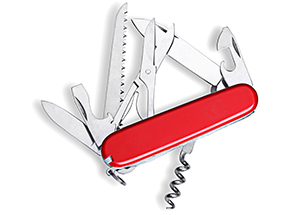8 Behavioral Styles That Affect How We Return to Work
By Dr. Jeremy Graves
We are living in a world of change. We all know that the world is changing and, like most things in life, once we get used to this change a new one will occur. We may not know what tomorrow brings, but we can be certain that change is constant so learning to deal with change is a great predictor of our success as leaders.
Recently millions of people were told to shelter in place. What was novel at first quickly became mundane, and frankly lead to a large group of stir-crazy employees working from home. Over the next six to nine weeks we began to experience a new sense of normal and to develop a routine for working from home. Just like most things in life, as soon as we got good at it (and used to it) our places of work are starting to slowly re-open.
The Power of DISC Language
Improving Communication During High-stress Situations and Making Performance Evaluations More Meaningful
Debbie Cronin is an administrative manager responsible for directing a busy 30-person department at St. Peter’s Health, where she works with a diverse team of professionals from a variety of practices. When Debbie is on the floor, she wears many hats, acting as is the admin of the day, the house supervisor, the wound and ostomy nurse manager, and the float department manager. Not only is she accountable for the floor, but she also has to contend with a multitude of personalities, work behaviors and communications styles throughout her day. All of this, coupled with a non-stop stressful work environment, can be a challenge to say the least. Read More
“DISC Is a Swiss Army Knife”
How Elizabeth Roberts Uses DISC to Help Start-Ups Succeed
When Elizabeth Roberts, Partner and Head of People at Ulysses Holdings, took the DISC TriMetrix HD Assessment over three years ago, it made an immediate impression on her.
“I thought, ‘I don’t really understand this, but I feel like they might have cameras in my house’,” she jokes.
She had taken assessments before, and hadn’t been overly impressed. She hadn’t bought into the idea of an algorithm telling her about herself and had been put off by tests that attempted to tell her who she was. “Different tests told me I was an introvert, an extrovert … and the feedback was never in a language that I understood.” Read More
Help Your Boss Understand Your Work Style
Using DISC Insights to Manage Up and Manage Down
When Leadership Coach Lori McNeill first met Mike Molloy, Associate Director at Immunext, Inc., she noticed that he was experiencing frustration at work. “His speech was fast-paced, and he would strike the table for emphasis. You could physically see and hear the tension he was experiencing.”
Luckily, Mike’s frustrations were easy to get to the bottom of—and to remedy.
Mike was among a group of leaders at Immunext that were going through The Complete Leader program. As part of the leadership development course, the group took the DISC Assessment, and then had debriefing sessions with facilitators Ron Price and Whit Mitchell, to help them unpack all of the insights that the assessment offers. Read More
Make Your Team Better with DISC
By Whit Mitchell
Why do people lose their jobs? Managers hire for skill, but they rarely fire for incompetence. Instead they fire because of bad behavior.
“Bad” behavior comes in many forms. It can be behavior that the manager doesn’t understand, or a reaction to a recent responsibility change or a promotion. What if you had a tool to understand employee behavior? What if that tool could even help you anticipate where an employee might succeed, where an employee might struggle, or where conflict on the team might appear? Well you do, and it’s called DISC. Read More







